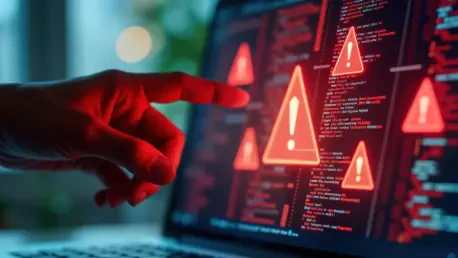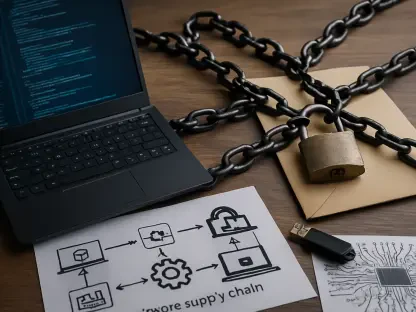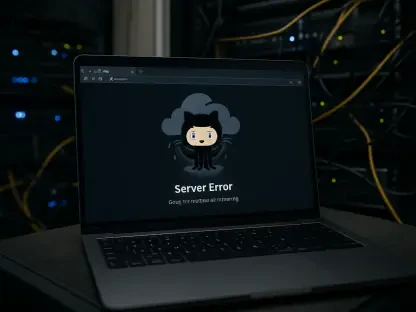The cybersecurity landscape is constantly evolving, with attackers finding newer ways to compromise network security. Fortinet highlights the urgency for organizations to update their FortiGate devices due to recent discoveries of exploitation techniques targeting known vulnerabilities. Despite these vulnerabilities being patched, threat actors continue to find ways to exploit them.
Understanding the Persistence of Cyber Threats
Cyber threats persist even after vulnerabilities are patched, highlighting the continuous battle between security measures and malicious activities. Attackers evolve their techniques, making it crucial for organizations to proactively update and secure their devices against potential exploits.
The Discovery of Exploit Techniques Post-Patch
Recent investigations reveal that attackers maintain read-only access to FortiGate devices post-update by using symbolic links between user file systems and root file systems. This technique exploits folders intended for language files for SSL-VPNs, allowing continued access to configuration files even on updated devices.
Insights from Fortinet’s Recent Investigation
Fortinet’s Chief Information Security Officer, Carl Windsor, noted that the symbolic link modification occurs in the user file system, evading detection. This discovery emphasizes the importance of thorough investigations to uncover hidden threats, even after vulnerabilities appear to be patched.
Potential Implications and Ongoing Exploitation Tactics
The implications of these findings are significant. Attackers can maintain access to critical configurations, posing ongoing risks to network security. The continued exploitation of these tactics underscores the need for consistent vigilance and the prompt application of security updates.
Real-World Impact on Industries and Organizations
The real-world impact of these exploits is profound, affecting various industries and organizations. The persistent threat of cyberattacks necessitates robust security measures to protect sensitive data and infrastructure.
Case Studies: Instances of Devices Compromised Despite Updates
Several case studies illustrate the vulnerability of devices to these new exploit techniques despite updates. Compromised devices highlight the need for enhanced security protocols and the importance of staying ahead of evolving threats.
Challenges in Detecting and Mitigating New Exploit Methods
Detecting and mitigating new exploit methods presents significant challenges. Attackers constantly adapt, making it difficult for traditional detection methods to identify and neutralize threats effectively. Advanced security measures and continuous monitoring are essential for early threat detection.
Technological and Strategic Responses to Vulnerabilities
Technological and strategic responses are crucial in addressing vulnerabilities. Ensuring that security systems and protocols can effectively counter exploitation techniques is vital for maintaining robust network security.
The Role of FortiOS Updates and Security Engines
Fortinet recommends upgrading devices to FortiOS versions 7.6.2, 7.4.7, 7.2.11, 7.0.17, or 6.4.16. These updates not only remove existing malicious symbolic links but also prevent their future creation. FortiOS’s antivirus and intrusion prevention system engines are pivotal in detecting and removing these threats.
Preventive Measures and Future-Proofing Network Devices
Implementing preventive measures is key to future-proofing network devices. Regular updates, combined with advanced security features, provide a comprehensive defense against evolving threats. Adopting a proactive approach ensures that devices remain secure against the latest exploitation techniques.
Broader Context: Global Cybersecurity Landscape
The global cybersecurity landscape reflects varied exploitation practices across different regions. Understanding regional variations can inform better security strategies tailored to specific threats.
Regional Variations in Vulnerability Exploits
Exploitation of vulnerabilities varies significantly across regions. Recognizing these differences can help organizations implement more effective security measures, addressing the unique threats they may face.
Predictions for Future Exploitation Techniques
Future exploitation techniques will likely become more sophisticated. Predictive analysis and intelligence gathering are essential for anticipating and countering these advanced threats. Organizations must be prepared to adapt and innovate in response to emerging cyber threats.
Comparative Analysis: Fortinet vs. Competitors’ Security Responses
Comparing Fortinet’s security responses with those of competitors provides valuable insights into the effectiveness of different approaches. This analysis can guide organizations in selecting the most robust security solutions.
Expert Opinions on Effective Mitigation Strategies
Industry leaders suggest that combining cutting-edge technology with strategic planning is crucial for effective mitigation. Implementing comprehensive security protocols, regular updates, and continuous monitoring form the backbone of a robust security posture.
Innovations in Network Security Protocols
Innovations in network security protocols continue to evolve, offering enhanced protection against new threats. Staying informed about the latest advancements ensures that organizations can adopt the best practices for maintaining secure networks.
Key Insights from Fortinet’s Mitigation Recommendations
Fortinet’s mitigation recommendations highlight the importance of timely updates and advanced security measures. These insights emphasize proactive steps to protect devices against emerging threats.
Steps Organizations Should Take to Protect Their Devices
Organizations should implement Fortinet’s recommended updates, ensure continuous monitoring, and adopt advanced security features. Prioritizing these steps will significantly reduce the risk of exploitation.
Best Practices for Fortinet Device Security Management
Best practices for Fortinet device security management include regular updates, comprehensive security protocols, and continuous threat intelligence. Maintaining these practices ensures ongoing protection against evolving cyber threats.
Reflecting on the Evolution of Cyber Exploits
The evolution of cyber exploits underscores the need for robust, proactive security measures. Understanding the dynamics of cyber threats enables better preparation and response strategies.
The Continuing Relevance of Robust Network Security
Robust network security remains crucial in the face of evolving threats. Continuous enhancements to security measures and staying informed about the latest threat landscape are essential for maintaining secure networks.
Encouraging Proactive Measures and Strategic Upgrades
Encouraging proactive measures and strategic upgrades is key to mitigating risks. Organizations must prioritize security investments and stay ahead of potential threats through continuous innovation and vigilance. Regular updates, thorough monitoring, and strategic planning are vital components of an effective cybersecurity defense.
Organizations benefited from understanding these insights and making informed decisions to enhance their security posture. Fortinet’s recommendations provided a roadmap for safeguarding devices against persistent threats, while a proactive approach ensured resilience against future exploitation techniques.









